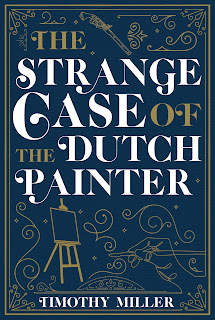Since the name of this blog is Writers Who Kill, I ‘ve decided to take that name as my material for today’s sermon. Of course, a foundational piece of advice to writers is “Kill your darlings”, meaning not merely a favorite character, but a favorite passage, place or peroration, which might cause the arrow of story to go wide of its mark. That’s a tough lesson to learn.
Or perhaps not, any more. These days young writers on social media seem to delight in racking up body counts in their stories. I call it the George R.R. Martin Effect, plowing through characters just as fast as we can get readers to become invested in them and mourn their often gruesome endings. Frankly, I abhor this practice, refer to it as violence porn (because it appeals to the reptile brain in us the same way as porn) and hate to see it whether in G. Martin or John Irving. I think it’s a new darling which ought to be stifled in the cradle. Your mileage may vary.
But if you’re writing a murder mystery, somebody’s got to die, right? Well, right you are. And probably more than one, as every murder raises the stakes and holds the reader’s attention. So you’re going to have to decide: who dies first? Because that death will lead to any other, necessary deaths. I think Agatha Christie has Hercule Poirot state somewhere that if we understand the psychology of the victim, we’ll know who the murderer is. I can only expand on this by saying that if we know the victim’s psychology, we know our plot, which is very good news for a writer.
And so I chose for my victim in my latest novel (spoiler alert!) Vincent Van Gogh. Reams have been written about his psychology. I threw them all out the window. All of that “he killed himself because he was crazy and we know he was crazy” jazz didn’t work for me.
What if: he didn’t kill himself? Then he must have been murdered. What if you weren’t sure? Then the mystery becomes: was he mad or sane?
But why would anyone kill a penniless, friendless painter? Who profits?
Well, there’s his brother, Theo. He’s been supporting Vincent for some time and now has a new wife and child to support. Vincent’s death would be quite a financial relief for him…But Theo considered his brother an investment of sorts, and his art was just beginning to be recognized. No, his brother is a red herring, or at least a dark horse.
Well, then, if no one profits, we have to fall back on another favorite motive. He knew something, or suspected something, about a criminal enterprise. Ah, then our plot falls into place. What did he know about? Art. All of his friends were involved in the art world. Forgery, then, or theft. These are the two great crimes of the art world. This is where someone profits, and profits greatly. The man who knows too much must be eliminated.
Then the question arises: was he made to seem mad? And that’s material enough for a book.
Other murders? Someone close to the detective, to raise the personal stakes for him. A chief suspect, to frustrate our detective and readers alike. And then…well, I can’t reveal all, can I?
Oh—and who is the detective? It would have to be someone active in 1890. Not someone quite so recognizable in France, like Gaboriau’s Monsieur LeCoq, or even the real-life head of Surete at the time, Monsieur Goron (though he may pop up in the narrative—after all, he wrote detective novels himself). An outsider, then, but one intimately familiar with France. Why not the English great-nephew of the famous French painter Horace Vernet? What was his name again? Oh, yes. Sherlock Holmes.
BIO
Timothy Miller is a native of Louisiana and a graduate of Loyola University in New Orleans. The Strange Case of the Dutch Painter (Jan. 18, 2022; Seventh Street Books) is his second mystery that features none other than Sir Arthur Conan Doyle’s most beloved character — Sherlock Holmes.
Miller has directed and designed lighting for plays in New Orleans and Chicago. The feature film of his screenplay At War with the Ants won a Silver Remi Award at Houston’s Worldfest. His screenplays have placed in several contests including five times as a semifinalist in the Academy’s prestigious Nichol Fellowship. He has taught English in Milan and has written for the Italian design magazine Glass Style.


Timothy,
ReplyDeleteYou have an interesting historical mystery on your hands. You have me wondering if the removal of one of his ears was part of the plot to make him appear mad -- or perhaps a first attempt that failed. Congrats on your latest novel.
~ Jim
Great take on how to know who dun it and why!
ReplyDelete"... if we know the victim’s psychology, we know our plot ..." Very good! Thanks for stopping by WWK today, Timothy. Oh, and I'm glad it's not Theo. I've grown fond of him over the years.
ReplyDeletecongrats on your latest release. Great premise.
ReplyDeleteTimothy, I love the way you've turned a well-accepted death into a possible mystery. A truly creative mind!
ReplyDeleteI love to read a rehash of historic events in a new light. Fascinating!
ReplyDeleteSlots, Live, Casino, Poker and More - LuckyClub
ReplyDeleteAll Slots, Live and Casino games at Lucky Club – The only place luckyclub to test the skill of slots! Grab the casino bonus, get your bonus and try your luck!